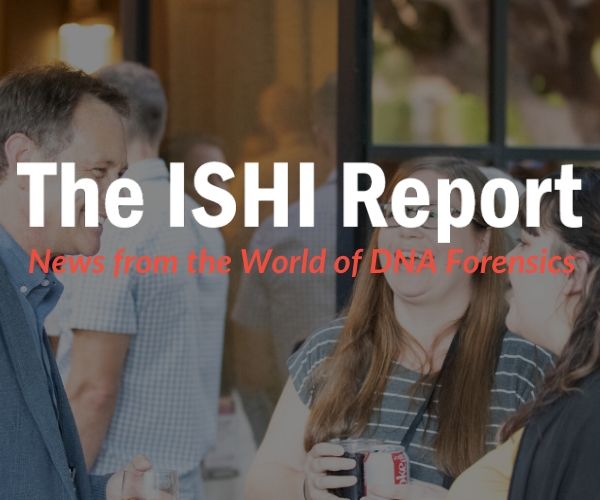The weather may still be arctic in Wisconsin, but we’re doing our best to think Spring! The latest issue of the ISHI Report should warm the heart of any forensic scientist. As always, we’ll explore some of the hottest topics affecting the field and meet influential individuals who are advancing the cause of science and justice.
Are you curious about how Rapid DNA is being used to solve criminal cases and assist in identifying victims of mass disasters? Ken Doyle interviews people who are using Rapid DNA to solve property crimes, establish local DNA databases and quickly identify victims from wildfires. If you want to explore how your agency could incorporate Rapid DNA into a workflow, plan to attend the workshop on “Implementation of Rapid DNA” at ISHI 31. This full day workshop is being organized by Douglas Hares from the FBI and will feature updates from SWGDAM’s Rapid DNA Working Group, lessons learned from the FBI’s Arrestee Rapid DNA Booking Station Pilot Program and more. The workshop scheduled for Monday, September 14 is expected to sell out, so register early to secure your place.
Perhaps you have heard the name Peter deKnijff? He is one of the most influential scientists in the field of forensic science and our colleague, Lotte Downey, had the pleasure of interviewing him for this issue. Among his many accomplishments, de Knijff was instrumental along with colleagues Lutz Roewer and Manfred Kayser in introducing Y-STRs into forensic work in the early 90s. Since then, he has continued advancing the field including pioneering work in MPS, or multiple parallel sequencing. Enjoy our conversation with Peter, who is not only a delightful fellow, but a brilliant scientist.
We also bring you an update on the Punjab Forensic Science Agency headquartered in Lahore, Pakistan. Director General Mohammad Tahir describes the challenges he faced in started the agency from the ground up in 2011. In a very short time, the PFSA has changed the culture of crime fighting in the region for the better. Where eyewitness testimony was once considered more reliable than forensic evidence, the PFSA has demonstrated that people dedicated to science and justice can change the world, one case at a time.
Registration for the upcoming 31st International Symposium on Human Identification is now open. We hope that many of you will plan to attend the symposium scheduled for September 14-17, 2020 at the JW Marriott Hill Country Resort in San Antonio, Texas. Visit the conference website to see the amazing workshops we are offering. They cover management topics, updates on DNA sequencing techniques, use of genetic genealogy, validation principles and much more. In all there are a dozen workshops scheduled led by recognized experts in the field.
We hope you enjoy this issue. As always, we welcome your ideas and written contributions to our publication.
START READING!


